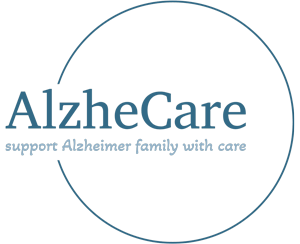When my grandmother first started misplacing her keys more frequently than usual, we didn’t think much of it. Looking back, these small changes were the earliest signs of her journey with Alzheimer’s disease. I’m sharing our family’s story and the lessons we’ve learned about early detection to help other families recognize the signs and take proactive steps.
Early Detection and Prevention

Living with Alzheimer's:
Our Family's Journey with Early Detection
Understanding Early Warning Signs
Through our experience, we’ve learned that Alzheimer’s often begins subtly. Beyond occasional forgetfulness, watch for:
- Difficulty completing familiar tasks
- Confusion with time or place
- Problems with words in speaking or writing
- Changes in mood or personality
- Poor judgment with finances or personal grooming
The changes may seem minor at first, but early recognition can make a significant difference in managing the disease’s progression.

Prevention Strategies That Worked for Our Family
While there’s no guaranteed way to prevent Alzheimer’s, research suggests several lifestyle modifications that may reduce risk.
In our family, we’ve embraced these changes together:
Physical Activity
We started with simple daily walks, gradually incorporating more structured exercise. Even moderate physical activity for 30 minutes a day can make a difference in brain health.
Mental Stimulation
We introduced daily cognitive exercises like crossword puzzles, learning new languages, and playing strategic games. These activities create cognitive reserves that may help delay symptom onset.
Social Engagement
Maintaining strong social connections became a priority. We organize regular family gatherings and encourage participation in community activities, which studies show may help protect against cognitive decline.
Dietary Changes
Our family adopted a Mediterranean-style diet rich in:
- Fresh vegetables and fruits
- Whole grains
- Lean proteins
- Healthy fats from olive oil and nuts
- Limited processed foods and refined sugars
Regular Health Monitoring
We established a routine of regular check-ups and health screenings, including:
- Annual physical examinations
- Blood pressure monitoring
- Cholesterol level checks
- Blood sugar testing
- Vision and hearing assessments
Taking Action: What We Wish We’d Known Earlier
If you notice concerning changes in a loved one’s cognitive function, don’t wait to take action. We learned that early intervention can:
- Provide more treatment options
- Allow for better planning and preparation
- Give families time to adjust and learn
- Enable participation in clinical trials
- Help maintain independence longer
Building Your Support Network
Creating a strong support system early is crucial. Consider:
- Connecting with local Alzheimer’s support groups
- Consulting with healthcare providers
- Involving family members in care planning
- Exploring community resources
- Documenting family medical history
Professional Evaluation Process
If you’re concerned about cognitive changes, we recommend:
- Documenting specific behaviors and changes
- Scheduling a comprehensive medical evaluation
- Requesting cognitive assessments
- Following up with specialists if needed
- Developing an action plan with healthcare providers
